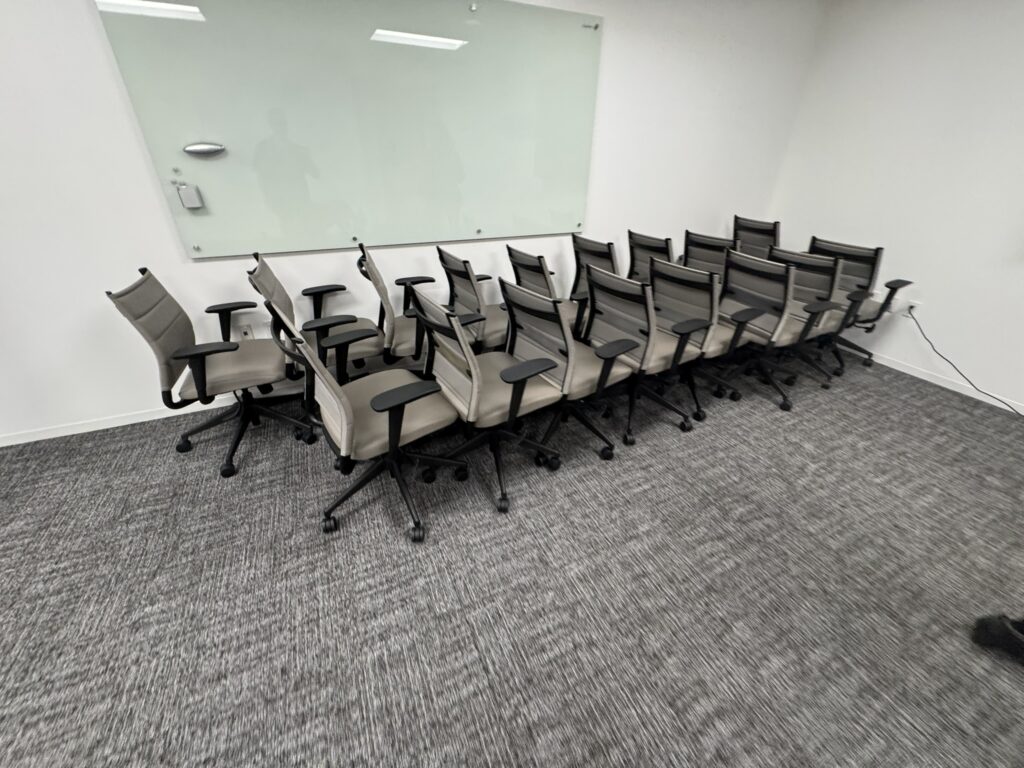In modern workspaces, office furniture plays a much bigger role than most managers realize. It’s no longer just about filling a space with desks and chairs—furniture choices influence how employees feel, think, and perform on a daily basis. Beyond aesthetics and comfort, the right furniture directly affects mental health, productivity, creativity, and overall job satisfaction. Poorly designed or outdated furniture can lead to physical strain, fatigue, and even burnout, while thoughtful design can foster focus, collaboration, and a sense of well-being. As more companies recognize the importance of employee wellness and retention, investing in high-quality, ergonomic, and versatile office furniture is no longer optional—it’s essential for a thriving, future-ready workplace.

Why Office Furniture Is More Than Just Furniture
Many businesses underestimate the psychological influence of office furniture. When employees are surrounded by uncomfortable chairs, cluttered desks, and uninspired layouts, it subconsciously sends a message that their comfort and creativity aren’t valued. On the other hand, quality office furniture can foster a sense of purpose, focus, and calm—fundamental components of mental wellbeing.
Ergonomics and Mental Clarity
There’s a direct connection between ergonomics and mood. Poor posture caused by unsupportive office furniture can lead to fatigue, tension headaches, and irritability. Ergonomic chairs, height-adjustable desks, and proper monitor positioning not only prevent physical discomfort but also contribute to mental alertness and improved concentration.

Furniture Layout and Emotional Flow
Layout matters. If office furniture is arranged in a way that creates barriers, dead zones, or isolation, it can negatively impact communication and team cohesion. A well-planned layout promotes ease of movement, encourages interaction, and supports a culture of openness. Mental health thrives in environments where people feel both connected and empowered.
Color Psychology in Office Furniture
The colors and finishes of office furniture can influence mood and productivity. Soft greens and blues reduce anxiety and stress, while vibrant yellows can energize creative teams. Even the texture of desk surfaces or fabric choices in chairs can either comfort or agitate, depending on their application. Choosing furniture that aligns with your company’s culture and energy levels makes a measurable difference.

Office Furniture and Personal Space
Providing employees with autonomy over their workstations—whether through adjustable chairs, sit-stand desks, or movable storage—fosters a sense of control. This reduces stress and supports mental clarity. Modular office furniture systems allow for personalization and flexibility, which can help individuals feel more at home in their workspace.
Signs Your Office Furniture Is Hurting Wellbeing
- Employees complain of back, neck, or wrist pain
- High turnover or absenteeism
- Lack of engagement or productivity in open-plan areas
- Visual clutter and poorly utilized space
If any of these sound familiar, your office furniture may be silently affecting your team’s mental health.
Choosing the Right Office Furniture for Wellness
Selecting mental-health-friendly office furniture doesn’t require a full remodel. It begins with being intentional:
- Invest in ergonomic seating for all employees
- Use height-adjustable desks to encourage movement
- Create breakout spaces with casual lounge furniture
- Prioritize natural light and place desks accordingly
- Incorporate storage that minimizes clutter

How Office Furniture Affects Company Culture
Office design signals your values. When you equip your space with thoughtful office furniture, it tells your team you care about their health and experience. This boosts morale and can even improve recruitment and retention. A supportive environment fosters creativity, loyalty, and psychological safety.
Conclusion: Invest in Wellness Through Furniture
The right office furniture does more than make your office look good—it makes your team feel good. By choosing furniture that supports posture, encourages movement, and reflects your brand values, you’re actively investing in your team’s mental wellbeing. It’s a tangible way to show your people that their health matters.
Looking to improve your workspace? Start with office furniture. A few smart changes can make a major difference in how your team feels, works, and succeeds.

